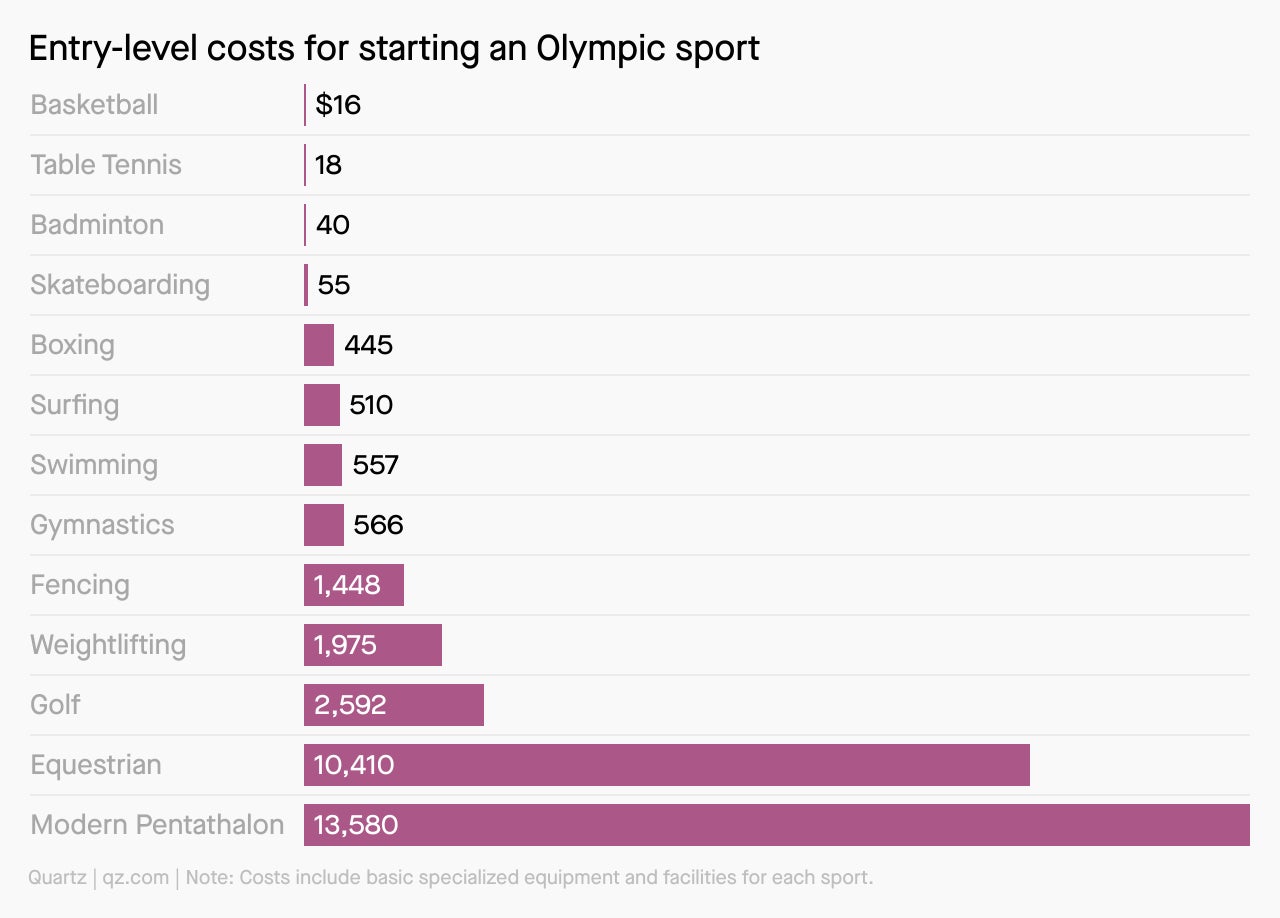
Hi Quartz readers!
Judging by the times in the qualifiers for the women’s 100m dash, a very old world record is under threat—tune in Saturday to catch the action. But first, a recap.
Highlight reel
- South Africa’s Tatjana Schoenmaker claimed the first individual swimming world record at the Tokyo Olympics after winning the women’s 200m breaststroke with a time of 2:18.95.
- Serbian tennis player Novak Djokovic’s Golden Slam hopes were dashed by a loss to Germany’s Alexander Zverev in the men’s singles semifinals.
- The first athletics gold medal of the Games went to Ethiopia’s Selemon Barega for the men’s 10,000m.
- The US team is out of the mixed 4x400m relay after a baton pass took place outside the designated handoff zone during a qualifying heat.
Money for nothing?
It’s not easy to figure out why cities host the Olympics, economically speaking. The median Games held between 1968 and 2012 came in 150% over budget, and after-the-fact measures of the benefits from tourist visits and media rights tend to fall well short of the outlays. Investments in sporting infrastructure don’t pay off in the long term (one reason private sports teams love public subsidies) and even the goodwill generated by the Olympics doesn’t add up. In recent years, residents of Boston and Hamburg have revolted against city leaders attempting to bid for the Games.
So why do countries still battle for the right to host the global athletic competition? One intriguing explanation is that spending a huge chunk of cash on a massive global event is a very credible way to send a message to the rest of the world: We’re here, we’re important, and we’d like to do business with you. One paper found that trade was 30% higher for countries that hosted the Olympics.
Critics reply that this is simply a self-selecting sample—countries that bid on the Olympics are on the up-and-up already, and would perform well even absent the Games. Which, in a way, is kind of comforting: You can’t justify humanity’s desire for athletic competition (or unsustainable megaprojects) with dollars and cents alone. —Tim Fernholz
515 kg (1,135 lb): Average weight of an Olympic eventing horse, not including all its accompanying baggage; the average dressage horse weighs 630 kg and the average jumping horse weighs 610 kg
1906: Year of the first recorded political protest at the Games, when track and field athlete Peter O’Connor climbed a flagpole and waved a flag in support of an independent Ireland
53: Years the longest lasting Olympic record has gone unbroken, held by American Bob Beamon in the long jump (although it’s no longer a world record)
976,000: Subscribers to Tom Daley’s YouTube channel
¥1,000 ($9): Increase in tolls for private drivers on the Tokyo Metropolitan Expressway during the Olympics
What to watch for
While the glamorous events of track and field—the 100m dash, the 1,500m run, the marathon—need no explanation, some of the more esoteric events can puzzle even longtime Olympics watchers. How they came to be included, and why they remain in the Games, has much to do with track and field’s central role in the history of the Olympics.
🦘🦘🦘 Triple jump: In the 19th century, jumping was a popular sport. The triple jump might be considered the first modern Olympic event, since the first medal awarded at the 1896 Games went to event champion James Connolly of the US.
🦯🚧 Pole jump: In northern Europe, travelers often used poles to swing themselves over canals and streams. The activity evolved into a sport.
🔨 Hammer throw: This event dates back as far as the ancient Irish Tailteann games, where contestants would compete at throwing various heavy objects, including blacksmith hammers.
Quotable
“It is a huge mental drain on me to know throughout the year that I’m swimming in a race that’s probably not clean. And that is what it is. The people that know a lot more about the situation made the decision they did. It frustrates me, but I have to swim the field that’s next to me. I don’t have the bandwidth to train for the Olympics at a very high level and try to lobby the people who are making the decision that they’re making the wrong decisions.” —US swimmer Ryan Murphy, after losing to the Russian Olympic Committee’s Evgeny Rylov in the men’s 200m backstroke
The cheapest—and most expensive—sports at the Olympics

Starting a new sport comes with costs. The most affordable are those with the least equipment and where publicly free facilities may be available. Those sports include basketball, where a ball costs $16; table tennis or badminton, which could be set up in your home; volleyball; soccer; and skateboarding.
The next level requires more specialized equipment and facilities like a gym or club membership. Sports like archery, boxing, swimming, and gymnastics fall under this category. Fencing, sport climbing, and golf involve even more gear, making them more expensive. Equestrian requires a lot of equipment for the jockey and horse, along with stable rental costs, all of which can run over $10,000.
The modern pentathlon combines equestrian, swimming, cross-country running, fencing, and laser pistol shooting, making it the most expensive Olympic sport to start.
✦ Use code QUARTZGOLD to get a 40% discount when you start a Quartz membership.
🎵 This email was produced while listening to John Williams’s “Olympic Fanfare and Theme.” If that’s wrong, we don’t want to be right.
Our best wishes for an inspiring day. Get in touch with us at [email protected] and live your best Quartz life by downloading our iOS app and becoming a member. Today’s email was brought to you by Tim Fernholz, Oliver Staley, Clarisa Diaz, Jordan Weinstock, and Liz Webber.